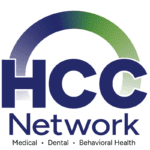HIV
What is HIV?
Human immunodeficiency virus (HIV) is a virus that attacks the body’s immune system. If it’s not treated, HIV can lead to acquired immunodeficiency syndrome (AIDS). Currently, there is no cure. But with proper medical care, HIV can be controlled. People with HIV who get effective HIV treatment can live long, healthy lives and protect their partners.
Symptoms
Most people get flu-like symptoms within two to four weeks after infections. Initial symptoms can last anywhere from a few days to several weeks. However, having these symptoms alone doesn’t mean you have HIV, and some people actually have no symptoms at all.
Diagnosing HIV
The only way to know if you have HIV is to get tested. Knowing your HIV status can help you make healthy decisions to prevent getting or transmitting HIV. Most HIV tests are quick, free, and painless.
HCC Network provides HIV tests that can be conducted in the hospital setting or self-administered.
How HIV Spreads
Most people who get HIV get infected through sex, or through sharing needles, syringes, or other drug-injection equipment. However, there are many powerful tools that can help prevent HIV transmission.
HCC Network provides HIV-prevention medicines like pre-exposure prophylaxis (PrEP) and post-exposure prophylaxis (PEP) drugs, as well as condoms, lube that can help prevent the spread of HIV, and sharps containers for safe needle disposal.
For more information, please contact a Patient Care Coordinator.
Note, the information on this page is sourced from the CDC and was updated December 2024. For the latest information on HIV, visit the CDC website here.
